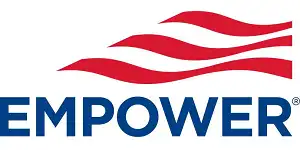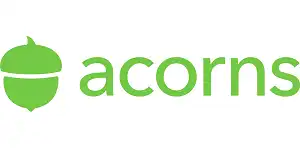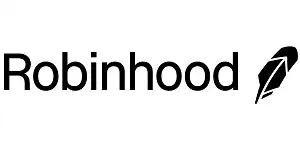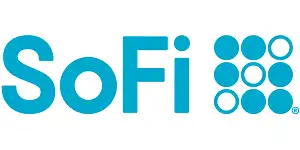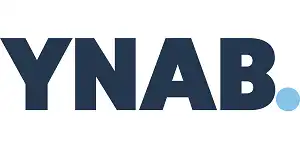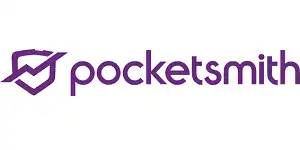Personal finance apps can help you budget, invest, manage your finances, and more with confidence in your decisions and the ability to easily track your progress. Spend less time stressing about money management and more time focusing on your goals, like retirement or buying a home.
Empower comes with a number of free, useful tools making it our recommended option for best personal finance app There’s a user-friendly portfolio tracking tool. a net worth calculator, and a retirement planner that can personalize your retirement outcome. Empower can track all of your financial information, including your bank accounts, and provide you with a total overview of your financial profile for free.
Overview: Best personal finance apps
- Our Pick: Empower
- Best for hands-off investing: Acorns
- Best for beginner investing: Robinhood
- plus other personal finance apps, like for budgeting, that are also great
All these best personal finance apps support you in managing your money and give you shortcuts for doing it more efficiently. From tracking your spending and saving for different goals to investing and seeing all of your accounts in one place, these digital tools can make your life a whole lot easier.
Empower: Best for wealth management
The Empower app is one of the best free apps to support with understanding and tracking your finances, including investments and net worth, and managing your wealth.
Empower is a hybrid digital wealth management company and powerful finance app. In addition to paid investment management and advisory services, Empower offers a number of free tools and calculators to help with everything from net worth tracking to saving and retirement planning.
- Easy-to-use app provides financial 'big picture'
- Tools and calculators are completely free to use
- Great security, including two-factor authentication
- Wealth management fees can be be high
- May be subject to upsells
Empower, formerly known as Personal Capital, provides a complete picture of your finances. It lets you see all your accounts at once with a graph for each spending and earning category – loans, mortgages, real estate assets, retirement savings, etc. – to easily track growth and decline and sort by individual security, asset class, or account. If you link to your stock portfolio, Empower will even help optimize your investments. You can also set spending goals, and Empower’s money tracking dashboard will keep you on target.
Empower offers a handy retirement planner tool that we consider one of the best as well that can help you minimize fees. It can help you anticipate big expenses and create a spending plan with the ability to run different scenarios (like a recession) and include major events that may impact your income or finances.
We recommend Empower to anyone ready to get serious about their finances and would like a powerful tool to help.
- Features: One of the best net worth trackers including total portfolio monitoring, budget planning, retirement planning tool, optional cash management and wealth management services.
- Cost: The Empower app is free to use, but investment management services are not included. To add investment management services, Empower charges modest fees of up to 0.89% based on the size of your portfolio.
» MORE: Sign up for Empower or read our full Empower Review
Acorns: Best for hands-off investing
Acorns is one of the best finance apps for anyone looking to start investing while staying hands-off. Acorns is an investing app that helps you grow your money with the help of Round-Ups and a robo-advisor. This means it automatically rounds up your purchases to the nearest dollar and invests the spare change for you.
Acorns makes it easy to start investing (even if you know nothing) and provides helpful tools to help you save more automatically. In under 3 minutes, start investing spare change, saving for retirement, earning more, spending smarter, and more.
- Effortless automated investing
- Easy-to-use savings features
- Low-cost solution to manage money
- Flat monthly fee more expensive for smaller accounts
- Can use more robo-advisor features
The Acorns robo-advisor chooses an expert-curated portfolio for you and picks exchange-traded funds (ETFs) to invest in based on your answers to questions about your financial goals and risk tolerance. Then, it performs automatic portfolio rebalancing. Acorns also has tools for banking, retirement planning, education cost planning, and more.
Acorns is a great choice if you’re new to investing and want an app that will automate the process. But if you want to choose your investments yourself from a wide range of options even as a beginner, a hands-on brokerage account may be better for you.
- Features: Round-Ups, bonus investments, Smart deposit, resources for both new and experienced investors.
- Cost: Personal plan ($3/month), which includes basic access to investing, retirement, and banking features. Other tiers include Personal Plus ($5/month) and Premium ($9/month), with the latter of these providing features like the ability to customize your portfolio with individual stocks and Banking for kids with GoHenry by Acorns to help teach your kids about money.
» MORE: Sign up for Acorns or read our full Acorns Review
Robinhood: Best app for beginner investing
Robinhood is one of the best apps for investing beginners to download and start building a portfolio with the best stocks to buy for as little as $1.
Robinhood is a popular stock trading and investing app that offers zero-commission trades on thousands of investments, including stocks, starting with as little as $1.
With beginner-friendly features and easy-to-read charts, Robinhood is great for new investors and there's advanced features even more seasoned investors can appreciate.
- Commission-free trading
- Easy to use, well-displayed dashboard
- No obligation or minimum account balance
- No bonds or mutual funds
- Crypto fees can be more transparent
Robinhood is an intuitive stock trading and investing app best for beginners that offers zero-commission trades on thousands of investments. Its popularity stems from a simplified trading experience, but it can also serve continue to serve as an option for more seasoned investors looking for a casual option. Robinhood offers both taxable investment accounts and IRAs (both traditional and Roth).
New investors may find one of the best things about Robinhood is the ability to buy fractional shares of a stock or ETF.That means you can buy a partial portion of a share of Apple or Tesla if you don’t have enough for a full share or want to invest a lower amount. You can place fractional share orders in dollar amounts or share amounts and Robinhood lets you know what’s supported when placing an order. Most are!
There’s also dividend reinvesting (DRIP) and a tool for recurring investments, so Robinhood basically offers everything a beginning investor would desire.
- Features: Trade stocks, ETFs, options, American Depositary Receipts (ADRs), IPOs (some), cryptocurrency, offers fractional shares, news feed, watchlist, alerts, Robinhood Gold (unlocks more premium features).
- Cost: Free to download and sign up. No fees on stocks, ETFs, options, or crypto trades. Robinhood does collect a “spread” fee, which is the difference between the buy and sell price of a trade.
» MORE: Open a Robinhood account or read our full Robinhood Review
Also great
Apps that are best for budgeting can help you keep you on track and your finances in check. There are also personal finance apps for savings, credit monitoring and a number of others we recommend as also great options to add to your repertoire.
SoFi’s Financial Insights Tools: Best app for credit monitoring
SoFi is a free financial app providing credit score monitoring, account aggregation and budgeting, and tools to help you manage the repayment of your student loans and other debts.
SoFi Financial Insights tool is loaded with free features that track your credit score and help you budget. See all your accounts in one place, get weekly credit score updates, and manage student loan and other debt repayment.
- Free credit monitoring and budgeting in one
- One-of-a-kind student loan management tools
- No affect on your score score
- Uses VantageScore, not FICO
SoFi gives you a complete picture of your finances and credit score. It’s accessible via web browser or the SoFi mobile app.
Activating credit score monitoring with SoFi and exploring SoFi’s financial insights tools is completely free. You do not need to be an existing SoFi member to enroll. After you sign up, you’ll have immediate access to your VantageScore 3.0 credit score, provided by the credit bureau TransUnion. Your score will automatically update each week so you can see how it changes over time and learn to manage your finances in a way that will gradually improve your credit.
» MORE: Learn more or create a free credit score monitoring account with SoFi now or read our Review of SoFi’s Financial Insights Tools
YNAB: Best budgeting app for money management
You Need a Budget (YNAB) might be the right app for you if you’re ready to put the work into getting your money on track,. Many budgeting apps will tell you how much you should generally be spending, but YNAB is much more hands-on. It uses the concept of zero-based budgeting to help you give every dollar of your income a job.
You Need a Budget (YNAB) is more than a software program; it’s a lifestyle for budgeting.
Whether your goal is to get out of debt, break the paycheck-to-paycheck cycle, grow your savings accounts, or all of the above, YNAB’s theory is that giving every dollar “a job” can help.
- Easy to get started with free trial
- Track spending and saving goals
- Both automatic and manual account linking
- No spammy advertising or upsells
- Learning curve for best use
- Ongoing fee applies
Basically, you’ll set your budget categories after creating your account using default and custom options, syncing your bank accounts for accurate cash flow tracking. You can adjust these categories whenever you need to. Then, you’ll allocate a portion of your paycheck to each category until you’re left with $0. You’ll budget for monthly bills, savings goals, and anything else you want to prioritize. YNAB lets you create budgets for a week at a time, a month at a time, or a one-time goal; track your debt repayments; and set big-picture wealth targets.
YNAB helps users save money by holding them accountable, but it isn’t cheap to use. Though compared to free budgeting apps, YNAB offers more resources and customization.
If you like the idea of having complete control over your finances, you’ll love YNAB. If you’re looking for a budgeting app that’s more hands-off and doesn’t require you to do much work, keep looking at other options.
- Features: Tools for budgeting, debt payoff, and financial goal tracking along with a number of educational resources and calculators.
- Cost: YNAB costs $14.99 a month or $99 for an annual plan, but there’s a 34-day free trial for everyone. YNAB is also free for college students for 12 months with proof of enrollment.
» MORE: Sign up for YNAB or read our full You Need a Budget Review
PocketSmith: Best app to help you stay informed
With PocketSmith, you can connect multiple accounts and monitor everything in one place. This includes your checking, savings, credit cards, and loan accounts. As you pull those accounts in, your transactions are automatically slipped into categories to help you better see where your money is going.
PocketSmith is an app that acts somewhat like a financial personal assistant. It helps you manage and organize your expenses in a way that allows you to understand your complete financial picture.
You can understand where you spend and then create a financial plan to better organize your spending.
- Excellent budgeting features
- Comprehensive financial dashboard
- Links with multiple accounts
- Pricing can be expensive
The PocketSmith app has a dashboard where you can see all your finances like your net worth and spending activity. Your cash flow statement can also be found here and is automatically updated as you receive income and spend money.
PocketSmith allows you to take advantage of features like forecasting up to 60 years in the future (yes 60) to stay on top of your finances and make more informed decisions. In addition to forecasting, PocketSmith also gives you a calendar view of your upcoming bills. I’ve found this type of layout makes it easy to see what I have coming up and cancel subscriptions I no longer use.
- Features: Ability to synch your data into Pocketsmith, net worth and spending reporting, and forecasting with budgeting timeframes.
- Cost: PocketSmith offers four tiers of pricing: Free, Foundation, Flourish and Fortune. Prices can range from free, as the name implies, to paid tiers ranging from $9.99 – $39.95 a month.
» MORE: Sign up for PocketSmith or read our full PocketSmith Review
The competition
We recommend sticking with some of the options we broke down above. These, however, are some other personal finance products that you may have heard of or may want to look into if you discover they may be a better fit for your personal situation and needs.
Pocketguard

PocketGuard is an all-in-one budgeting app that lets you sync every bank account, credit card, loan, and investment account you have to better understand your cash flow. It’s kind of like Empower, our top pick, in that regard.
You can link your bank accounts and cards to PocketGuard through a secure, encrypted connection, and the app keeps tabs on your account balances. It will show you your spending patterns by category and overall. Then, PocketGuard estimates what you can afford to spend on a typical day after you’ve already paid your bills and put away money to save. But beyond just showing you how you spend with insights and a useful visual pie chart, PocketGuard helps you spend less.
Using Autosave, you can contribute to your different savings goals without thinking about it, making this an option for growing your savings. PocketGuard can also help you lower your monthly bills by negotiating better rates and reducing unnecessary fees. PocketGuard is ideal for savings-minded people but does not offer as much expense tracking as some other budgeting apps. You will have to pay a fee to get their most customizable features.
Oportun
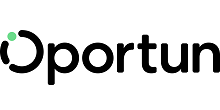
Oportun, formerly Digit, is one of the best money-savings apps that takes automatic savings beyond what you typically see, using technology to help you set some money aside.
The first step with Oportun is to link your bank account so the app can learn your spending habits. You then share unlimited specific savings goals, like maybe for a used car. Money is taken a little here and a little there until you reach your goal with Oportun, saving you money in a way you won’t notice. The Oportun app also calculates a smart amount to budget for your bills whenever you make a deposit and can help reduce overdrafts.
If you’re interested in investing with Oportun also offers this ‘little here, little there’ methodology for an investment account.
How we picked the best personal finance apps
We picked the best personal finance apps by first looking at they offer versus their competitors. Is it a personal finance app for budgeting? Is another budgeting app better? Can this personal finance app be used to buy stocks and invest in ETFs? Some are very specific, while Empower, our top pick, is a powerful tool that provides a total financial picture.
From there, we looked at price (not all we recommend have a free option), availability, additional features, commitments, and whether if you downloaded one of these apps today if you would be in a better position than yesterday.
Who are the best personal finance apps for?
The best personal finance apps are for people looking to better manage their finances in an easier fashion. There’s a variety of apps for savings, budgeting, tracking your money and investing to better your current financial profile and help achieve a better future outcome. These apps are for people who need a tool to invest with, want to save for goals, want a budgeting app to help teach them how to budget, and/or want to understand how they’re currently set up for a potential retirement.
Personal finance apps can help you spend less time stressing about money management and more time building your finances.
How to choose a personal finance app
Unfortunately, no single app can do it all, although some of the ones on this list come close.
There’s no rule saying that you can only have one app, but it’s a good idea to start with one so you can learn how to use it without getting overwhelmed. Here are a few ways to pick the best one.
Consider your biggest goal
To choose the best one for you, we recommend working backward from the top financial goal you’re working on right now.
For example, if your number one goal is to save by keeping your spending in check, you’re going to want to start with a budgeting app. If your number one goal is to manage your investment accounts more easily, check out investment apps first. If you’re not quite sure what your top goal is, an all-in-one app that serves multiple purposes, like Acorns, is a safe bet.
Weigh the costs
Some money apps are free to use and some charge a monthly or annual fee. Depending on your income and needs, it may or may not be worth it to pay for an app. If you really need to overhaul your finances and aren’t really sure what to tackle first, start with a free app. If you can afford to spend a little bit on an app, the paid version will likely offer more features and support for meeting your financial goals.
The paid apps in our list are worth paying for, but only if you can afford to. An app shouldn’t make you feel stressed out or put any strain on your finances, and there are more than enough free apps out there to help you start making progress on your goals. And if there’s a free trial of a paid app, always take advantage.
If you do go with a paid app, watch out for hidden fees. (Also, make sure you understand the account fees associated with investing apps as these can be more complicated.)
Make a commitment
How much time and energy will you realistically be able to commit to using an app? Some require daily use to really get the most out of them while others use automation and algorithms to give you as little work as possible. Choose an app you’ll actually use so that it doesn’t join the graveyard of apps you never open somewhere on your phone.
Benefits of the best budgeting apps
It’s too easy to shirk your budget when you don’t have someone or something holding you accountable. We don’t have to tell you why budgets (or spending plans, if you please) are important, but we will tell you a few of the specific advantages budgeting apps can offer.
Some of the options we discussed above, like YNAB, are some of the best budgeting apps we’ve found.
Track your expenses
The better you are at tracking your own spending, the more likely you are to stay on top of your bills and live below your means. Budgeting apps can give you a better understanding of where your money is actually going, making it easier to find ways to spend a little less here and a little less there. You can identify pricey patterns or unnecessary expenses quickly and free up cash to save, invest, or do more of the things you want to do.
Reach your savings goals faster
Budgeting apps can help you save for different goals with features like automatic transfers and insights about how you can tweak your spending habits to shave a little money off your budget. The extra? Save or invest it.
Pay off debt
You might not just knock out all your debt with a budgeting app, but you sure can make progress. Budgeting apps can help you develop debt repayment strategies and track your progress over time. This is helpful whether you’re working on paying off student loans, credit cards, or other types of debt.
If you have a lot of debt, we recommend starting with a free budgeting app or method to avoid taking on any more expenses than you need to.
Benefits of the best investing apps
Investing apps, like Acorns, can help you manage your portfolio with less effort. Many give you an overview of your assets and their performance, research you can use to make your next investments, and tracking tools that show you if you’re meeting your investing goals. They don’t usually do anything you couldn’t do yourself, but they can make investing considerably more efficient.
Consolidate your accounts
Putting all of your investment accounts in one place is one of the best things you can do for yourself. It can help you understand how your whole portfolio is performing so you can strategize your next moves more effectively.
Make better investments
You don’t have to wait to get an investing app until you’ve already started investing. These apps can also help you make decisions about how and where to invest your money with the help of educational resources and expert recommendations. Many even offer blog posts and forums where you can learn more about basic investing topics if you’re starting from square one.
Benefits of money management apps
Money management apps put everything in one place for ultimate convenience. If you have a lot of accounts, you can save time checking them and optimize them with ease. All-in-one apps can help with everything from budgeting to creating a savings or debt reduction plan, depending on which one you choose. Empower is our favorite money management app.
Track your net worth
A net worth tracker is a great way to keep tabs on your progress and see how far you’ve come. Setting net worth goals is an important part of any money management plan, and it’s something that most apps can help you with. Whether you’re trying to save for short-term goals, get out of debt, plan for retirement, or get rich, setting and tracking goals will help you stay on track.
Monitor your credit score
Your credit score is one of the most important factors in your financial life, so understanding how to get your free credit reports and scores is equally important. A finance app can help you improve your credit rating by tracking your progress. Some may even offer tips for things you can do to improve your credit, like which of your debts to focus on paying off first.
Avoid late fees and missed payments
Don’t leave it up to yourself to keep track of due dates for all of your bills when you can use an app like PocketSmith. These days, bill payments are easier to automate than ever with just a little planning ahead. This is one of the best ways to avoid late payments (for the sake of your wallet and credit) or worse, missed payments. Make your bills an app’s problem, not yours.
Summary: Best personal finance apps
Organizing your money is one of the biggest favors you can do for yourself. It can help you feel less stressed and more optimistic about your finances, even helping you cut bad habits like wasteful spending and undersaving and replace them with more productive ones.
Any of the apps above will help you put every cent to better use so you can focus your energy on the things that matter to you.
Best personal finance apps FAQs
Is Mint still available?
No, Mint is no longer available as of early 2024. It was one of the most popular budgeting tools out there and one of the original budgeting app. Many of the popular features Mint offered to manage your finances were moved to Credit Karma.
What’s a personal finance app?
A personal finance app is any financial app that can help you track your finances, budget, and/or manage your money. A financial app can also provide a service like monitoring your credit score or act as a gateway for you to invest.
Are personal finance apps safe?
Yes, most personal finance apps are highly secure and use bank-level (often 256-bit) encryption to protect your information. When choosing an app, look into what extra steps they take to keep your money, financial data, and personal information safe.
YNAB, for example, uses password best practices to prevent you from choosing a password that could be easily guessed and deletes all of your account information if you deactivate your account. All Acorns accounts are covered by the maximum SIPC or FDIC insurance permitted and the app uses things like alerts and ID verification to ensure only you are logging into your account.
